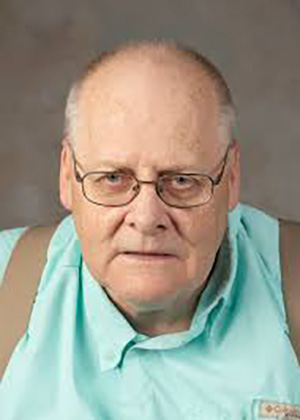OPINION —
In the spring of 1992, I walked into a 90-year-old woman’s small apartment in Gadsden, Alabama, for an interview as part of a series on the 50th anniversary of the Women’s Army Corps. She was fascinating: original, witty, well-traveled and a successful woman fighting the constraints on women of her era.
She was a Double Gold Star mother, having lost two sons — a Navy pilot in World War II and an Army pilot in the Korean War. After her first son was killed, she might have kept her surviving son out of harm’s way. But she said he loved the military and she supported him in living his dream of flying.
“A reporter for The Birmingham News gave me the news,” she explained to me, recalling how she learned her second son was dead. “The reporter was crying even more than I was because he was a good friend.” Not even as a journalist would I like to be told by a reporter instead of an officer or NCO that a loved one was gone.
Fortunately, Julie Moore led a campaign to make death notifications more formal and compassionate. In the past, taxi drivers would notify the deceased’s family. It is no surprise that she is being honored along with her husband, the late Hal Moore. Fort Benning will be renamed for them. He was a legendary leader in war and peace. The Moores spent their retirement years in Auburn.
“I decided the summer of ’49 that Hal Moore was the man for me and chased him till he caught me,” Moore recounted in 1996. “We were married in November and the first child was born 18 months later at Fort Bragg. We moved to Fort Benning when Greg was 4 months old and Hal attended the Advanced Infantry Officers Course. All the Bragg crowd went with us. Toward the end of the school year, Hal received the orders I had been dreading — Korean War.”
Another woman to be honored with a fort named for her will be Dr. Mary Walker, the only woman in American history to receive the Medal of Honor. Fort A.P. Hill in Virginia will soon carry her name. She was appointed as a War Department surgeon in the Civil War and was a women’s rights leader.
Walker was captured in 1864 by Confederates and held as a prisoner of war for four months. President Andrew Johnson awarded her the Medal of Honor, but it was rescinded 52 years later because she was a civilian and never a commissioned Army officer. More than 900 other MOH awardees also had theirs rescinded.
“Dr. Mary Walker’s service to the nation, perseverance over significant obstacles based on her gender and lifelong fight for equality serve as an example and inspiration for all Americans,” according to the Naming Commission.
The third woman to be honored with her name on a U.S. Army fort is Lt. Col. Charity Adams Earley. She graduated from high school in Columbia, South Carolina, as class valedictorian, secured a bachelor’s degree and was midway into a master’s in psychology by 1942. She joined the newly organized Woman’s Army Auxiliary Corps out of patriotism after the U.S. entered WWII.
At age 25, she commanded the first and only unit with African American women, which soon deployed to the European Theater. It was the only all-Black, all-female battalion serving overseas in the war. The 6888th Central Postal Directory Battalion’s motto of “No mail, low morale” was effective. Adams’ crew handled some 200,000 letters per day and about six million pieces of mail each month. Lt. Gen. Arthur Gregg’s name will be alongside hers. He had an astounding Army career.
Moore recalled in 1996, “When we received the news from President Johnson in July 1965 that the 1st Cavalry would go to Vietnam, there was a flurry of activity among wives to get men packed up. The Army had no camouflage insignia or underwear, so our great concern was dying underwear (Two forest green to one black was standard formula. The Chattahoochee River ran green for months).”
Invariably, when a deployment is announced, soldiers head to Walmart and the PX to get underwear, lots of batteries and ramen noodles should they get sick of military meals. And don’t forget plenty of socks. But for people like that Double Gold Star mother from 1992 in Gadsden, there was no Hal and Julie Moore to push through necessary changes across the spectrum.
In Part Two next week, I will discuss why many people at these forts oppose name changes, although they know the new honorees are worthy.
Greg Markley first moved to Lee County in 1996. He has master’s degrees in education and history. He taught politics as an adjunct in Georgia and Alabama. An award-winning writer in the Army and civilian life, he has contributed to The Observer for 11 years. gm.markley@charter.net.

